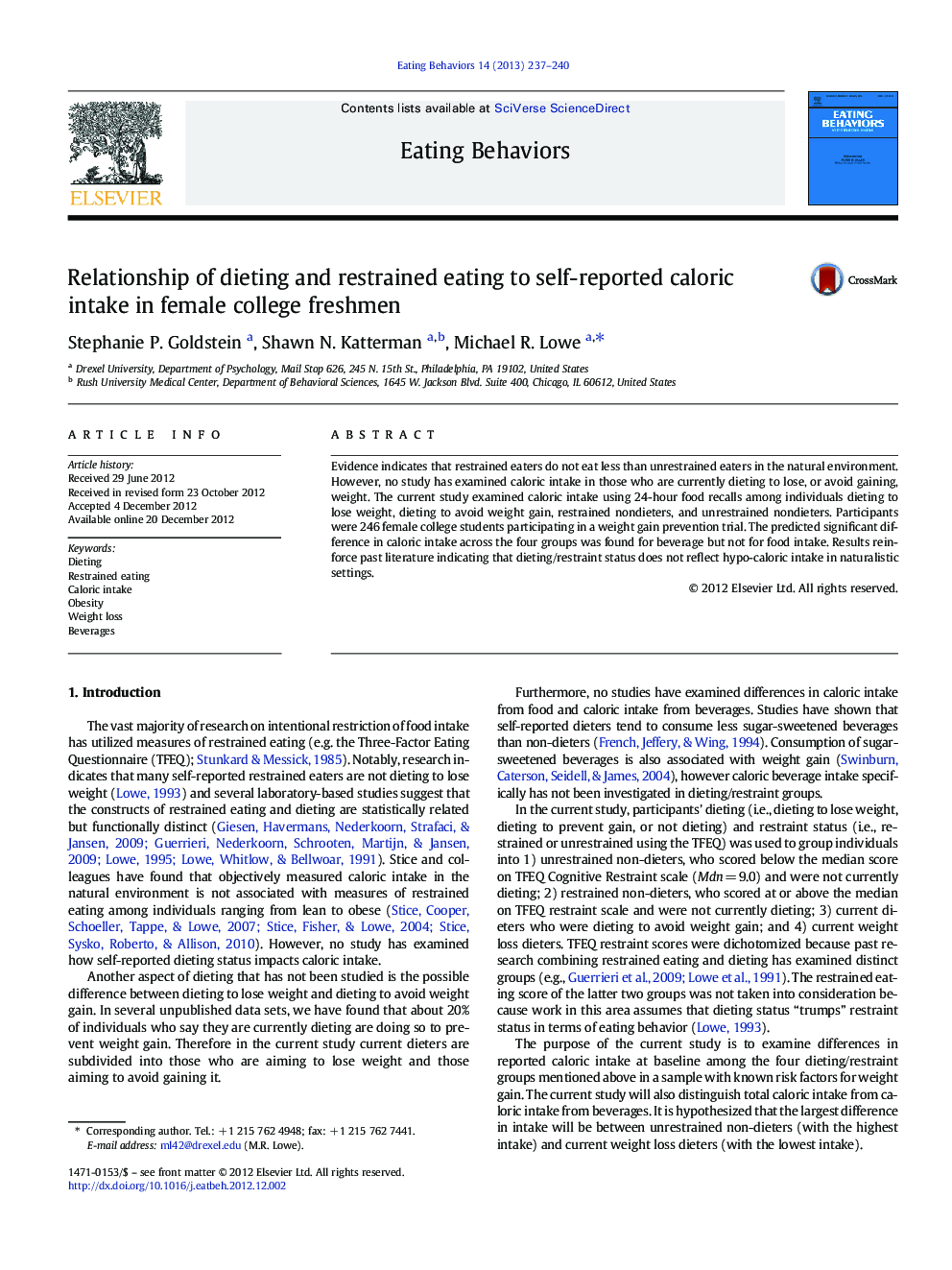| Article ID | Journal | Published Year | Pages | File Type |
|---|---|---|---|---|
| 906473 | Eating Behaviors | 2013 | 4 Pages |
Evidence indicates that restrained eaters do not eat less than unrestrained eaters in the natural environment. However, no study has examined caloric intake in those who are currently dieting to lose, or avoid gaining, weight. The current study examined caloric intake using 24-hour food recalls among individuals dieting to lose weight, dieting to avoid weight gain, restrained nondieters, and unrestrained nondieters. Participants were 246 female college students participating in a weight gain prevention trial. The predicted significant difference in caloric intake across the four groups was found for beverage but not for food intake. Results reinforce past literature indicating that dieting/restraint status does not reflect hypo-caloric intake in naturalistic settings.
► We examine differences in dietary intake among different dieting/restraint groups. ► Dieting/restraint groups do not differ significantly in total caloric intake. ► Dieting/restraint groups differ significantly in caloric beverage intake. ► Dieting/restraint groups might be restricting beverage, but not food, consumption.
